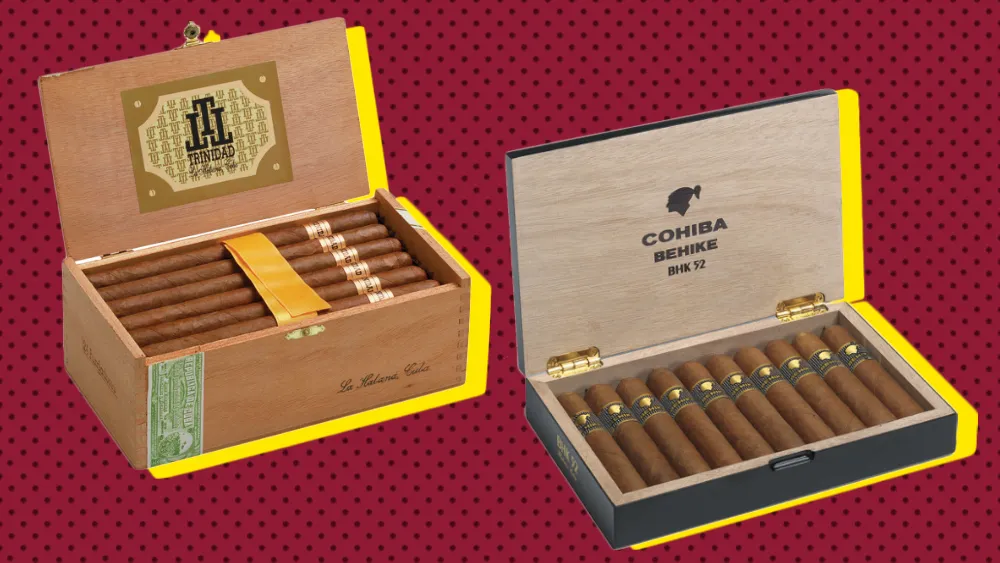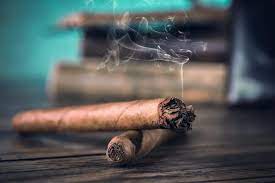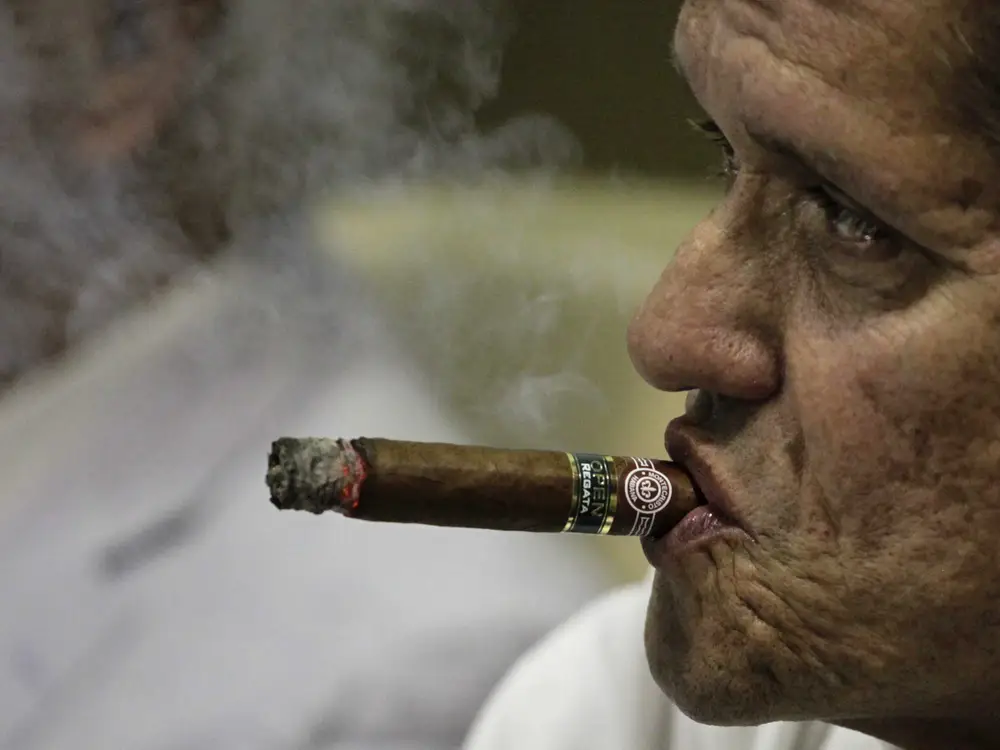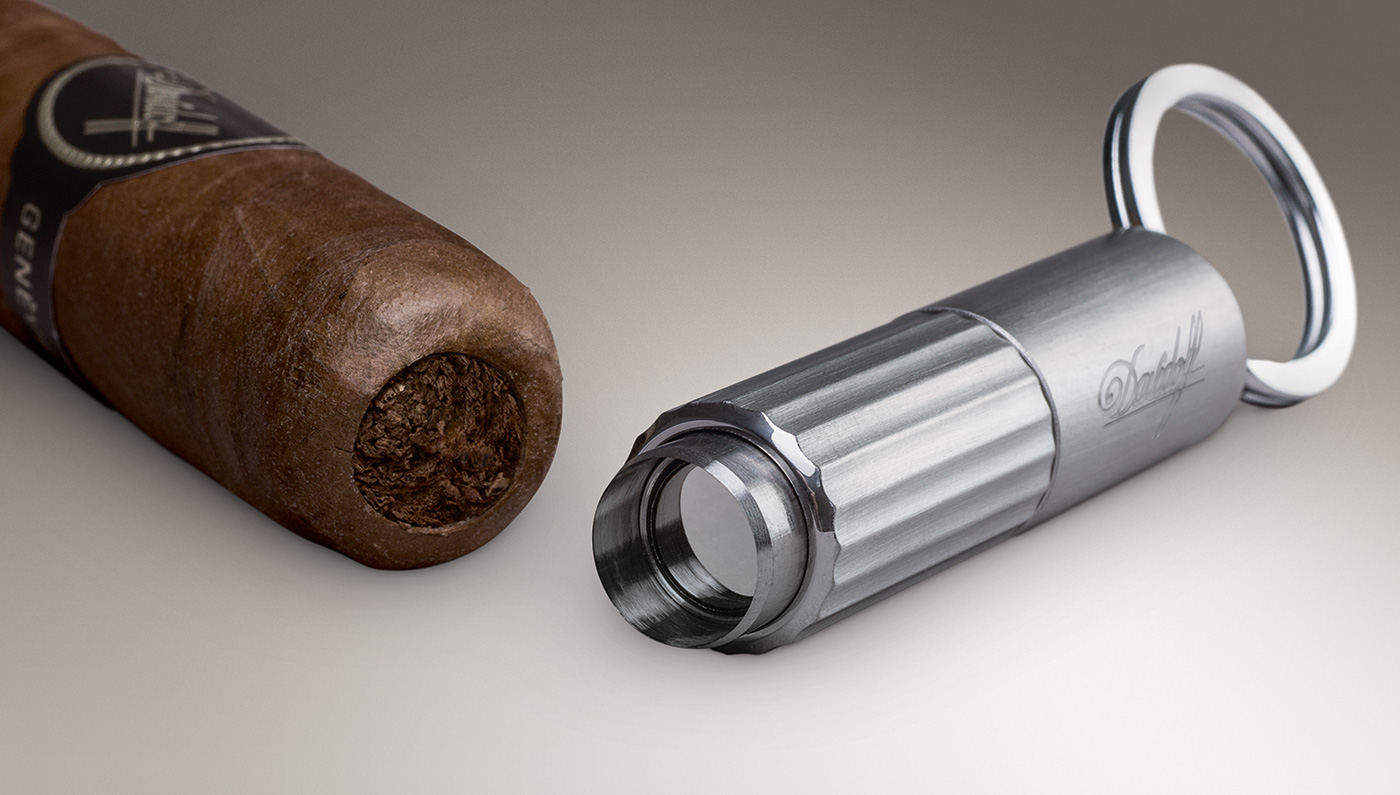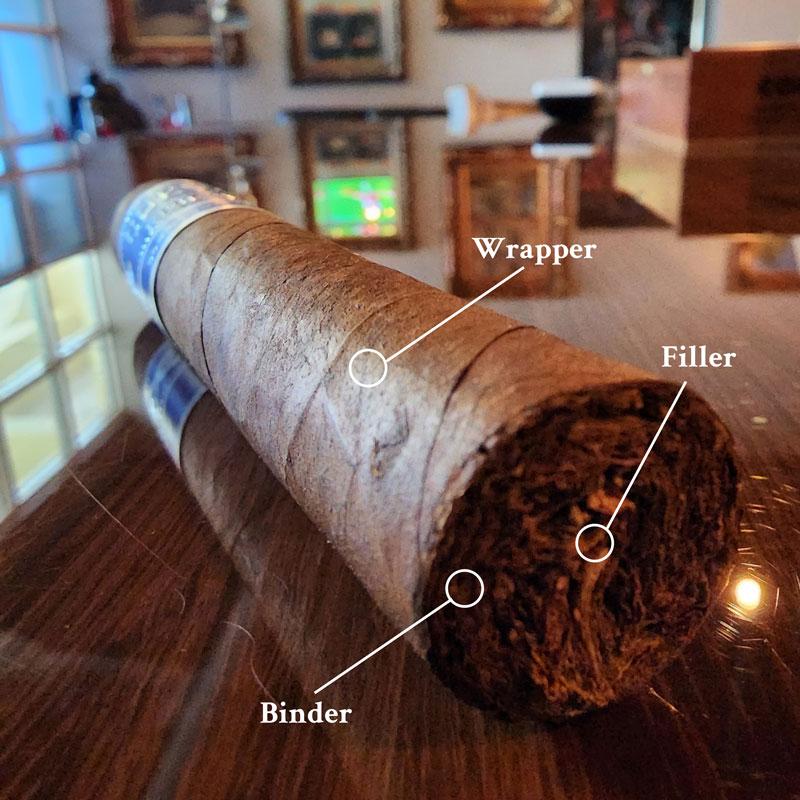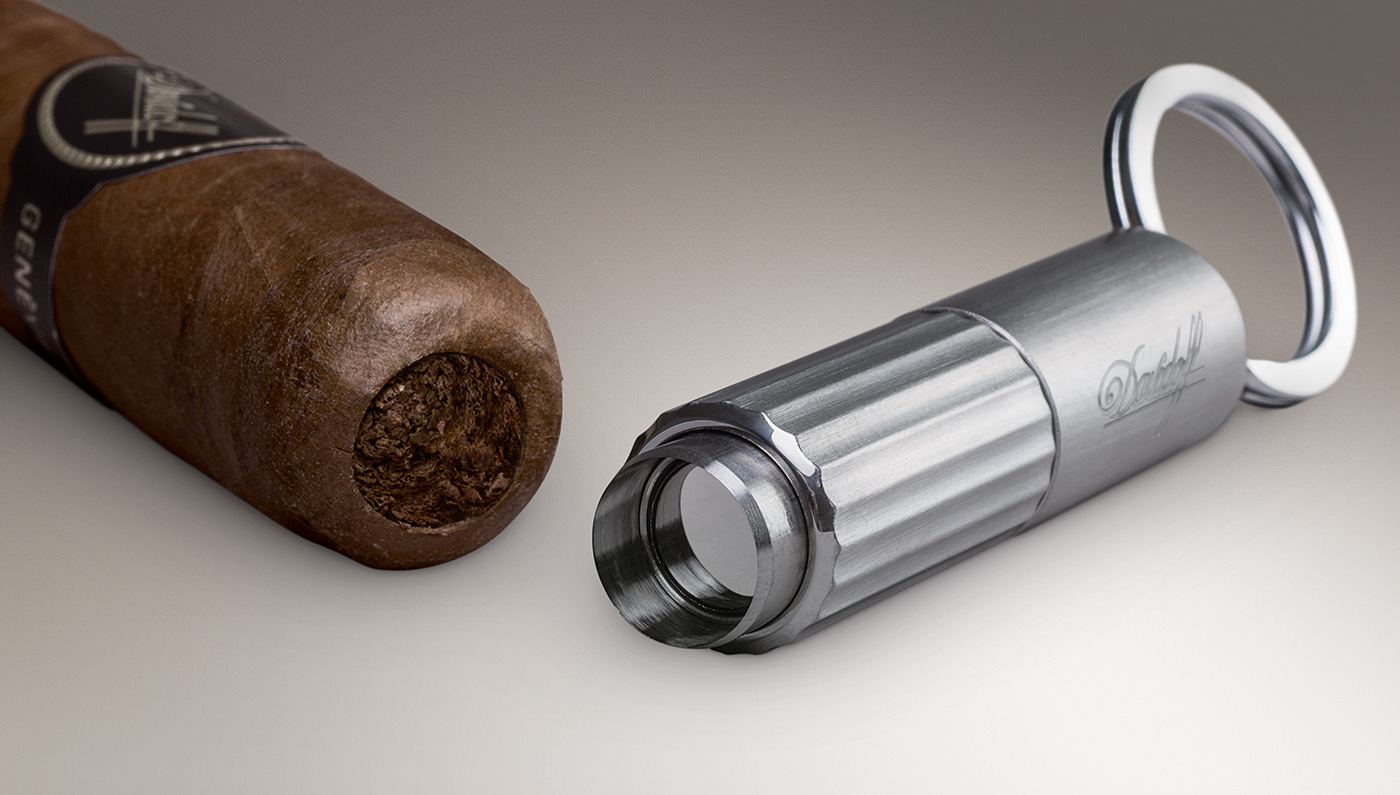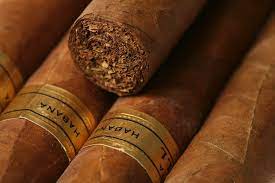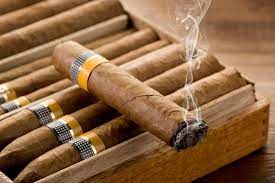Discover the Unparalleled Excellence of Cuban Cigars so Special – A Journey into the Art and Craftsmanship of the World’s Finest Tobacco good
Cuban cigars are regarded as the epitome of luxury and elegance in the world of tobacco. Their reputation is not unwarranted, as they are highly prized for their exceptional quality and unrivaled craftsmanship.
One of the main reasons why Cuban cigars are considered the best in the world is due to the unique climate and soil conditions in Cuba. The combination of the country’s tropical climate, rich volcanic soil, and generations of knowledge and expertise in tobacco cultivation and production has allowed Cuban cigar makers to create cigars with unparalleled flavor and aroma.
Hand-rolling is another factor that sets Cuban cigars apart. The process of rolling cigars by hand requires immense skill and precision. Experienced torcedores meticulously select and blend the tobacco leaves to create a cigar that is not only visually appealing but also offers an exceptional smoking experience. This attention to detail and dedication to craftsmanship is what makes Cuban cigars stand out.
Furthermore, the use of long-filler tobacco in Cuban cigars contributes to their superior quality. Long-filler tobacco consists of whole leaves that are rolled into the cigar, as opposed to short-filler tobacco which uses chopped or shredded leaves. This results in a cigar that burns more evenly, allowing the flavors to develop more smoothly and providing a more enjoyable smoking experience.
Are Cuban Cigars Worth It?
When it comes to cigars, Cuban cigars are often considered the gold standard. They have a long-standing reputation for their exceptional quality and craftsmanship, which can make them highly desirable for cigar enthusiasts around the world. However, the question remains: are Cuban cigars worth the hype?
Unique Taste and Flavor
One of the main reasons why Cuban cigars are highly regarded is their unique taste and flavor profile. The climate, soil conditions, and expertise of Cuban cigar makers contribute to the distinctive flavors that can be found in these cigars. They often exhibit rich and complex flavors, with notes of earthiness, cedar, leather, and spices. The craftsmanship that goes into rolling each cigar also plays a role in enhancing the overall smoking experience.
Strict Quality Control
Another factor that sets Cuban cigars apart is the strict quality control measures in place. The Cuban cigar industry has a well-established system to ensure that each cigar meets certain standards of excellence. From the selection of premium tobacco leaves to the rolling process, every step is carefully monitored to maintain consistent quality. This attention to detail contributes to the overall perception of Cuban cigars as being superior.
Prestige and Exclusivity
Cuban cigars are known for their prestige and exclusivity. Due to various political and economic factors, Cuban cigars are not as widely available as other cigar brands. This limited accessibility increases their desirability and adds to their allure. For many, smoking a Cuban cigar is viewed as a symbol of luxury and sophistication.
Conclusion
So, are Cuban cigars worth it? The answer depends on your personal preference as well as your budget. Cuban cigars offer a unique smoking experience with their distinct flavors and reputation for quality. However, they can also come with a higher price tag and limited availability. Ultimately, if you are a dedicated cigar enthusiast who appreciates the craftsmanship and history behind Cuban cigars, they may be worth the investment. But if you are simply looking for a good smoke without breaking the bank, there are many other excellent cigar options available on the market.
The Rich Cuban History
Cuba has a long and captivating history when it comes to tobacco and cigars. The country has the perfect combination of climate, soil, and expertise to produce some of the world’s finest cigars. Cuban cigars have long been celebrated for their impeccable quality and unique flavor profiles.
It all began in the early 16th century when tobacco was introduced to Cuba by the indigenous Taino people. However, it was not until the 19th century that Cuban cigars gained recognition as a luxury item worldwide. The demand for cigars soared, and the Cuban cigar industry flourished.
The reputation of Cuban cigars continued to grow throughout the 20th century. The Cuban government took control of the industry in the 1960s and established strict regulations to ensure the quality and authenticity of Cuban cigars. These regulations, along with the expertise of Cuban cigar makers, have helped maintain the exceptional standards for which Cuban cigars are renowned.
One of the key factors that make Cuban cigars stand out is the meticulous workmanship that goes into their production. Cuban cigar makers, known as torcedores, are highly skilled individuals who dedicate their lives to perfecting their craft. Each cigar is carefully rolled by hand, using selected tobacco leaves, and undergoes a strict quality control process to ensure consistency and excellence.
Another aspect that sets Cuban cigars apart is the unique tobacco grown in the Vuelta Abajo region. This renowned region in western Cuba has the ideal climate and soil conditions for growing high-quality tobacco. The tobacco leaves used in Cuban cigars are meticulously cultivated, fermented, and aged to perfection, resulting in a rich and complex flavor profile.
Furthermore, Cuban cigars have become a symbol of luxury, sophistication, and craftsmanship. They have been enjoyed by notable figures throughout history, including world leaders, celebrities, and cigar connoisseurs. The allure of Cuban cigars lies not only in their exceptional quality but also in the rich history and culture that surrounds them.
In conclusion, the rich Cuban history of tobacco and cigars has played a significant role in the exceptional quality and reputation of Cuban cigars. With a perfect combination of climate, soil, expertise, and a long-standing tradition, Cuban cigars continue to captivate cigar enthusiasts around the world.
The Prestigious Craftsmanship
When it comes to cigars, the craftsmanship plays a vital role in determining its quality. Cuban cigars are renowned for their unparalleled craftsmanship, which has been perfected over centuries.
Each Cuban cigar is meticulously handcrafted by highly skilled artisans known as torcedores. These torcedores undergo years of training and apprenticeship to master the art of rolling cigars. They possess an intimate understanding of the tobacco leaves and know how to expertly blend different types to achieve the desired flavors and aromas.
One of the key factors that sets Cuban cigars apart is the selection of tobacco leaves used in their production. Cuba is blessed with the perfect climate and soil conditions for growing tobacco, which results in leaves with exceptional flavor and texture. The torcedores carefully select the best leaves, taking into account factors such as color, texture, and aging.
Furthermore, Cuban cigars are known for their unique and complex blending techniques. The torcedores skillfully combine different tobacco leaves from various regions to create a harmonious flavor profile. The blending process involves layering and rolling the leaves in a precise manner to ensure a consistent and balanced burn throughout the cigar.
The tradition of craftsmanship in Cuban cigar production is not limited to the rolling process. Each cigar undergoes a meticulous quality control inspection to ensure that only the finest cigars leave the factory. Every aspect, from the appearance and construction to the draw and burn, is carefully evaluated to meet the high standards set by Cuban cigar makers.
In conclusion, the prestigious craftsmanship behind Cuban cigars is what sets them apart from others. The skill and expertise of the torcedores, coupled with the quality of the tobacco leaves and the intricate blending techniques, result in cigars of unparalleled excellence. It is this dedication to tradition and attention to detail that have made Cuban cigars synonymous with luxury and enjoyment.
The Unique Climate and Soil
Cuban cigars are renowned for their superior quality and flavor, and one of the factors that contribute to their excellence is the unique climate and soil conditions found in Cuba. The Caribbean island nation has a warm and humid climate throughout the year, which creates the perfect environment for growing high-quality tobacco.
The soil in Cuba is also highly favorable for tobacco cultivation. The volcanic soils, particularly in the Vuelta Abajo region, contain a rich combination of minerals and nutrients that are essential for the growth of top-quality tobacco plants. The volcanic ash deposits in the soil give the tobacco leaves a unique flavor and aroma that cannot be replicated elsewhere.
In addition to the climate and soil, the microclimates in different regions of Cuba also play a role in the distinct characteristics of Cuban cigars. The natural balance of rain, sunlight, and temperature variations within these microclimates help in the development of nuanced flavors and complex aromas in the tobacco leaves.
The combination of the warm and humid climate, nutrient-rich volcanic soil, and favorable microclimates make Cuban cigars truly exceptional. It is these ideal growing conditions that contribute to the rich and distinctive taste that aficionados all over the world seek in Cuban cigars.
| Climate | Soil | Microclimates |
|---|---|---|
| Warm and humid | Volcanic soil with minerals and nutrients | Natural balance of rain, sunlight, and temperature |
The Signature Cuban Flavor
Cuban cigars are renowned for their exceptional taste and aroma, and this can be attributed to what is often referred to as the signature Cuban flavor. Here are some key elements that contribute to the unique characteristics of Cuban cigars:
1. Soil and Climate
Cuba’s fertile soil, combined with its ideal climate, provides the perfect conditions for growing high-quality tobacco. The rich soil, known as “terra rossa,” is rich in minerals, which give the tobacco leaves a distinct flavor. The climate, with its warm days and cool nights, allows the tobacco plants to develop slowly, resulting in a more complex and flavorful tobacco leaf.
2. Traditional Farming Practices
Cuban tobacco farmers have been practicing their craft for centuries, using traditional methods that have been passed down through generations. These methods include hand-planting the tobacco seeds, careful monitoring of the plants’ growth, and hand-picking the leaves at the peak of maturity. These traditional farming practices contribute to the unrivaled quality and flavor of Cuban cigars.
Furthermore, the use of organic fertilizers and the absence of synthetic chemicals in Cuban tobacco production contribute to the purity of the tobacco and enhance its natural flavors.
3. Skillful Blending and Aging
Cuban cigars are made by expert cigar rollers, known as torcedores, who possess years of experience and skill. They carefully select and blend different tobacco leaves, including the filler, binder, and wrapper, to create cigars with a balanced flavor profile.
After the cigars are rolled, they are aged in specially designed wooden cabinets, where they undergo a process of fermentation and maturation. This aging process allows the flavors and aromas of the tobacco to develop and mellow, resulting in a smoother and more refined smoke.
Finally, the meticulous quality control measures implemented by the Cuban government, which include inspections and certifications, ensure that only the finest cigars make it to market, further guaranteeing the exceptional quality and flavor of Cuban cigars.
In conclusion, the signature Cuban flavor is the result of a combination of factors, including the unique soil and climate, traditional farming practices, skillful blending and aging techniques, and strict quality control measures. All these elements come together to create the unmistakable taste that has made Cuban cigars world-famous.
The Strict Quality Control
Cuban cigars are renowned for their exceptional quality, and one of the reasons behind this is the strict quality control that is applied throughout the entire production process.
From the moment the tobacco seeds are sown in the fertile Cuban soil, to the time the cigars are packaged and sealed in the iconic wooden boxes, each stage of the manufacturing process is carefully monitored and controlled.
Hand-picked Leaves
Only the finest tobacco leaves are selected for Cuban cigars, and these leaves are hand-picked by skilled workers who have years of experience in tobacco farming.
Each leaf is thoroughly examined for size, color, texture, and uniformity before it is deemed suitable for rolling into a cigar. This meticulous selection ensures that only the best leaves are used in the production of Cuban cigars.
Traditional Rolling Techniques
Cuban cigars are known for their exquisite craftsmanship, and this is largely due to the traditional rolling techniques employed by the torcedores, or cigar rollers.
These highly skilled artisans are trained to roll the cigars by hand, using only the finest tobacco leaves and a special binder made from natural gum. Each cigar is carefully shaped and rolled, ensuring a perfect draw and even burn.
The torcedores pay close attention to every detail, from the precise amount of filler tobacco used to the tension applied during rolling, to create cigars that are not only visually appealing but also deliver a consistent and enjoyable smoking experience for aficionados.
Rigorous Quality Assurance
Once the cigars have been rolled, they undergo rigorous quality assurance checks to ensure that they meet the exacting standards set by the Cuban government.
Each cigar is inspected for construction flaws, such as cracks or uneven burn, and any cigars that do not meet the criteria are discarded. This meticulous quality control ensures that only the highest quality cigars make it to the market.
Moreover, each box of Cuban cigars is marked with an official seal, guaranteeing its authenticity and quality.
In conclusion, the strict quality control applied to the production of Cuban cigars ensures that every cigar that bears the Cuban seal is a testament to the country’s commitment to excellence and craftsmanship. This attention to detail is what sets Cuban cigars apart and makes them truly exceptional.
The Status Symbol
Cuban cigars have long been associated with prestige and luxury. They have become a symbol of wealth and class, often seen as a status symbol among the elite.
Part of the allure of Cuban cigars is their exclusivity. Due to the trade embargo on Cuba, they are not readily available in most countries. This limited accessibility adds to their desirability and exclusivity, making them a coveted item among connoisseurs.
Furthermore, the craftsmanship and quality of Cuban cigars contribute to their status symbol. The rich flavors and smoothness of the tobacco are a result of the meticulous process of cultivation, rolling, and aging. Each cigar is carefully handcrafted by skilled torcedores, ensuring a perfect smoke every time.
Smoking a Cuban cigar is seen as a sign of sophistication and refinement. It is a ritual that is often associated with special occasions and celebrations. The act of leisurely smoking a Cuban cigar is seen as an indulgence, a way to relax and enjoy the finer things in life.
Owning a box of Cuban cigars is not just about the pleasure of smoking them, but also about displaying them as a symbol of status. A humidor filled with Cuban cigars is a sight to behold and a statement of wealth and taste.
Overall, Cuban cigars have earned their reputation as a status symbol through a combination of limited availability, superior craftsmanship, and the association with luxury and refinement. They have become more than just a smoking accessory, but a statement of wealth, success, and sophistication.
The Aging Process
One of the main reasons why Cuban cigars are considered the best in the world is the meticulous aging process they undergo. The aging process is a crucial step that allows the flavors and aromas of the tobacco to develop and mature, resulting in a unique smoking experience.
After the cigars are rolled, they are placed in cedar-lined boxes and stored in special aging rooms called “bodegas,” where they undergo a slow and gradual aging process. During this time, the cigars are exposed to controlled temperature and humidity conditions, allowing them to harmonize and blend the different tobacco leaves.
The length of the aging process varies depending on the specific blend and size of the cigar. While some cigars may only require a few months of aging, others may need several years. This extended aging period allows the flavors to mellow out and become more refined.
Another important aspect of the aging process is the fermentation of the tobacco leaves. Fermentation helps to eliminate any impurities and harshness in the tobacco, resulting in a smoother and more complex flavor profile. The cigars are carefully monitored during the fermentation process to ensure optimal quality.
Throughout the aging process, the cigars are regularly inspected by expert cigar-makers, who check for consistency, flavor development, and overall quality. This attention to detail ensures that each cigar meets the high standards that Cuban cigars are known for.
By undergoing this meticulous aging process, Cuban cigars achieve a perfect balance of flavors and aromas, creating a luxurious smoking experience that is unparalleled. Whether you are a connoisseur or a casual smoker, the aging process is what sets Cuban cigars apart and makes them truly special.
The International Recognition
Cuban cigars have gained international recognition for their exceptional quality and craftsmanship. They are widely regarded as some of the best cigars in the world, and this reputation has been earned through decades of meticulous cultivation and production.
One of the main factors contributing to the international recognition of Cuban cigars is the unique tobacco used in their production. Cuban tobacco is grown in the famous Vuelta Abajo region of Cuba, where the soil and climate create ideal conditions for growing high-quality tobacco leaves. The tobacco plants are carefully cultivated and harvested by skilled farmers who have learned their craft over generations.
In addition to the exceptional tobacco, Cuban cigars are known for their precise construction and attention to detail. Each cigar is hand-rolled by highly skilled torcedores, or cigar rollers, who have undergone years of training to perfect their art. These torcedores work with care and precision to create cigars that are visually stunning and offer a perfect draw and burn.
Exclusivity and Prestige
Cuban cigars are also highly sought after due to their exclusivity. The United States embargo on Cuban products has made them rare and difficult to obtain, adding to their prestige and allure. For many cigar enthusiasts, smoking a Cuban cigar is a sign of sophistication and luxury.
Collectors’ Items
Another reason why Cuban cigars have gained international recognition is their status as collectors’ items. Many cigar aficionados actively seek out rare and limited edition Cuban cigars to add to their collections. These limited releases are often highly coveted and command high prices in the secondary market.
In conclusion, the international recognition of Cuban cigars can be attributed to their exceptional quality, unique tobacco, precise construction, exclusivity, and their status as collectors’ items. Smoking a Cuban cigar is an experience cherished by cigar enthusiasts around the world and is seen as a symbol of luxury and refinement.
Question and answer:, Why are cuban cigars good
What makes Cuban cigars so special?
Cuban cigars are considered to be some of the best cigars in the world. They are made from high-quality tobacco that is grown in Cuba’s unique climate. Cuban cigars are also hand-rolled by skilled artisans.
What are some of the most popular Cuban cigar brands?
Some of the most popular Cuban cigar brands include:
Cohiba
Montecristo
Hoyo de Monterrey
Partagas
Romeo y Julieta
Why are Cuban cigars so expensive?
Cuban cigars are expensive because they are in high demand and there is a limited supply. The Cuban government controls the production and sale of Cuban cigars, which also contributes to their high price.
Are Cuban cigars legal in the United States?
No, Cuban cigars are not legal in the United States. The United States has an embargo on Cuba, which prohibits the import of Cuban goods, including cigars.
Who is Fidel Castro?
Fidel Castro was the leader of Cuba from 1959 to 2008. He was a communist revolutionary who overthrew the Cuban government in 1959. Castro was a controversial figure, but he is also credited with improving education and healthcare in Cuba.
What is the difference between a Cuban cigar and a non-Cuban cigar?
Cuban cigars are made from tobacco that is grown in Cuba. Non-Cuban cigars are made from tobacco that is grown in other countries. Cuban cigars are also hand-rolled by skilled artisans, while non-Cuban cigars may be machine-rolled.
What is the best way to store Cuban cigars?
Cuban cigars should be stored in a humidor, which is a humidified container that will keep the cigars fresh.
How to smoke a Cuban cigar?
To smoke a Cuban cigar, simply light the end of the cigar and draw on it. The smoke will travel through the cigar and be drawn into your mouth.
What are the different flavors of Cuban cigars?
There are many different flavors of Cuban cigars, including:
Natural: This is the most common type of Cuban cigar, and it has a mild, earthy flavor.
Maduro: This type of Cuban cigar has a darker wrapper and a richer, more complex flavor.
Connecticut: This type of Cuban cigar has a light, sweet flavor.
What are the health risks of smoking Cuban cigars?
Cuban cigar smoking can be harmful to your health. Cuban cigar smoke contains over 70 known cancer-causing substances, including tar and carbon monoxide.
Are Cuban cigars really better than cigars from other countries?
Whether Cuban cigars are better than cigars from other countries is a matter of personal preference. Some people believe that Cuban cigars have a unique flavor and aroma that cannot be found in cigars from other countries. Others believe that cigars from other countries, such as Nicaragua and the Dominican Republic, are just as good as Cuban cigars.
What makes Cuban cigars so special?
There are a number of factors that contribute to the unique flavor and aroma of Cuban cigars. These include:
The climate and soil of Cuba, which are ideal for growing tobacco.
The traditional methods used to grow and cure tobacco in Cuba.
The skill of the Cuban cigar rollers.
Why didn’t I taste the difference between Cuban and non-Cuban cigars?
There are a number of reasons why you might not have tasted a difference between Cuban and non-Cuban cigars. These include:
Your personal taste preferences.
The quality of the non-Cuban cigars you smoked.
The way you smoked the cigars.
What makes the island’s climate and soil special for growing cigar tobacco?
The climate and soil of Cuba are ideal for growing cigar tobacco. The island has a warm, humid climate with plenty of sunshine. The soil is rich in nutrients and has a good drainage system.
What are some other factors that contribute to the quality of a Cuban cigar?
In addition to the climate and soil, other factors that contribute to the quality of a Cuban cigar include:
The type of tobacco used.
The aging process.
The construction of the cigar.
What is the difference between Cuban and non-Cuban cigar tobacco?
Cuban cigar tobacco is said to have a unique flavor and aroma that is due to the climate and soil of Cuba. Non-Cuban cigar tobacco is grown in a variety of countries, including Nicaragua, the Dominican Republic, and Honduras.
Are there any non-Cuban cigars that are considered to be as good as Cuban cigars?
There are a number of non-Cuban cigars that are considered to be as good as Cuban cigars. These include:
Padrón cigars from Nicaragua
Arturo Fuente cigars from the Dominican Republic
Ashton cigars from the Dominican Republic
What is the history of the Cuban cigar industry?
The Cuban cigar industry has a long and rich history. The first cigars were made in Cuba by the Taino Indians in the 15th century. The Cuban cigar industry began to flourish in the 19th century, and by the early 20th century, Cuban cigars were considered to be the best in the world.
How has the Cuban embargo affected the Cuban cigar industry?
The Cuban embargo, which was imposed by the United States in 1962, has had a significant impact on the Cuban cigar industry. The embargo prohibits the import of Cuban cigars into the United States, which is a major market for Cuban cigars.
What is the future of the Cuban cigar industry?
The future of the Cuban cigar industry is uncertain. The Cuban government is trying to open up the Cuban economy to foreign investment, but the embargo remains in place. The Cuban cigar industry is also facing competition from other countries, such as Nicaragua and the Dominican Republic.

